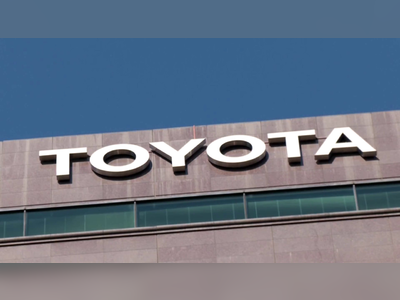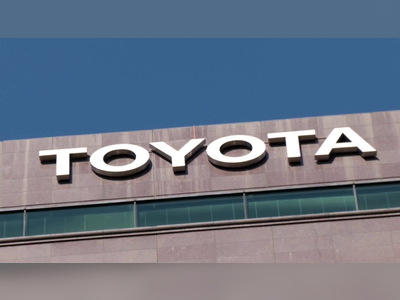0:00
0:00
EU Accuses Google and Apple of Violating Digital Market Rules Amid Tensions with U.S.
The European Commission's action against major tech firms could intensify transatlantic trade tensions, as it enforces the Digital Markets Act.
The European Commission has formally accused Google and Apple of violating its digital regulations, a move that signals a significant escalation in regulatory actions against major American technology companies.
This enforcement action occurs in a tense political climate, especially with the potential for retaliation from the United States as President Donald Trump has expressed his discontent over stringent regulations on American firms.
The Commission's accusations center on breaches of the EU's Digital Markets Act (DMA), which is designed to ensure fair competition in the digital marketplace.
Companies found in violation can face fines of up to 10% of their global revenue, escalating to 20% for repeat offenders.
Estimations based on Apple’s projected 2024 revenue of approximately $391 billion place the potential maximum fine at nearly $80 billion.
The enforcement action contends that Google favors its own services in search results, violating the DMA’s stipulations that require it to treat third-party services fairly and transparently.
Additionally, Google’s Play Store is claimed to limit developers by preventing them from directing consumers to alternative purchasing options that might offer better deals.
Apple is similarly facing scrutiny, with the Commission demanding that it allow its operating systems to interoperate with products from rival companies, including smartphones and wireless devices.
This move aims to enhance competition by facilitating connections between Apple’s products, like iPhones and iPads, and those from competing manufacturers.
In a second order, the Commission outlined specific protocols and timelines that Apple must follow in responding to requests from app developers to enhance system accessibility.
The company has responded critically to the EU's actions, suggesting that they introduce unnecessary bureaucracy that could hinder innovation and negatively impact European consumers.
Google's senior director for competition has also voiced concerns, asserting that enforced changes to search result dynamics could impair users' ability to find relevant information and reduce traffic to European businesses.
The EU's competition chief, Teresa Ribera, emphasized that the regulatory actions are simply the enforcement of established laws, aimed at creating certainty for both Apple and developers.
The Commission initiated proceedings against Apple in September to ensure compliance with DMA regulations.
Additionally, the EU's investigations extend to Meta, the parent company of Facebook and Instagram, which is being scrutinized for its subscription model that offers an advert-free experience in exchange for a monthly fee.
Trump has indicated that he may consider the regulatory landscape when deliberating tariffs against foreign companies, including tech giants from the EU.
Vice President JD Vance has criticized what he termed excessive regulation of artificial intelligence, particularly following the EU's legislative efforts with its Artificial Intelligence Act.
Moreover, the U.S. has opposed the UK’s proposed digital services tax and has raised concerns regarding Britain's Online Safety Act, asserting its implications for free speech.
Nonetheless, the UK government has reiterated that its legislative actions will remain independent of ongoing negotiations on tariffs with the Trump administration.
This enforcement action occurs in a tense political climate, especially with the potential for retaliation from the United States as President Donald Trump has expressed his discontent over stringent regulations on American firms.
The Commission's accusations center on breaches of the EU's Digital Markets Act (DMA), which is designed to ensure fair competition in the digital marketplace.
Companies found in violation can face fines of up to 10% of their global revenue, escalating to 20% for repeat offenders.
Estimations based on Apple’s projected 2024 revenue of approximately $391 billion place the potential maximum fine at nearly $80 billion.
The enforcement action contends that Google favors its own services in search results, violating the DMA’s stipulations that require it to treat third-party services fairly and transparently.
Additionally, Google’s Play Store is claimed to limit developers by preventing them from directing consumers to alternative purchasing options that might offer better deals.
Apple is similarly facing scrutiny, with the Commission demanding that it allow its operating systems to interoperate with products from rival companies, including smartphones and wireless devices.
This move aims to enhance competition by facilitating connections between Apple’s products, like iPhones and iPads, and those from competing manufacturers.
In a second order, the Commission outlined specific protocols and timelines that Apple must follow in responding to requests from app developers to enhance system accessibility.
The company has responded critically to the EU's actions, suggesting that they introduce unnecessary bureaucracy that could hinder innovation and negatively impact European consumers.
Google's senior director for competition has also voiced concerns, asserting that enforced changes to search result dynamics could impair users' ability to find relevant information and reduce traffic to European businesses.
The EU's competition chief, Teresa Ribera, emphasized that the regulatory actions are simply the enforcement of established laws, aimed at creating certainty for both Apple and developers.
The Commission initiated proceedings against Apple in September to ensure compliance with DMA regulations.
Additionally, the EU's investigations extend to Meta, the parent company of Facebook and Instagram, which is being scrutinized for its subscription model that offers an advert-free experience in exchange for a monthly fee.
Trump has indicated that he may consider the regulatory landscape when deliberating tariffs against foreign companies, including tech giants from the EU.
Vice President JD Vance has criticized what he termed excessive regulation of artificial intelligence, particularly following the EU's legislative efforts with its Artificial Intelligence Act.
Moreover, the U.S. has opposed the UK’s proposed digital services tax and has raised concerns regarding Britain's Online Safety Act, asserting its implications for free speech.
Nonetheless, the UK government has reiterated that its legislative actions will remain independent of ongoing negotiations on tariffs with the Trump administration.
AI Disclaimer: An advanced artificial intelligence (AI) system generated the content of this page on its own. This innovative technology conducts extensive research from a variety of reliable sources, performs rigorous fact-checking and verification, cleans up and balances biased or manipulated content, and presents a minimal factual summary that is just enough yet essential for you to function as an informed and educated citizen. Please keep in mind, however, that this system is an evolving technology, and as a result, the article may contain accidental inaccuracies or errors. We urge you to help us improve our site by reporting any inaccuracies you find using the "Contact Us" link at the bottom of this page. Your helpful feedback helps us improve our system and deliver more precise content. When you find an article of interest here, please look for the full and extensive coverage of this topic in traditional news sources, as they are written by professional journalists that we try to support, not replace. We appreciate your understanding and assistance.











